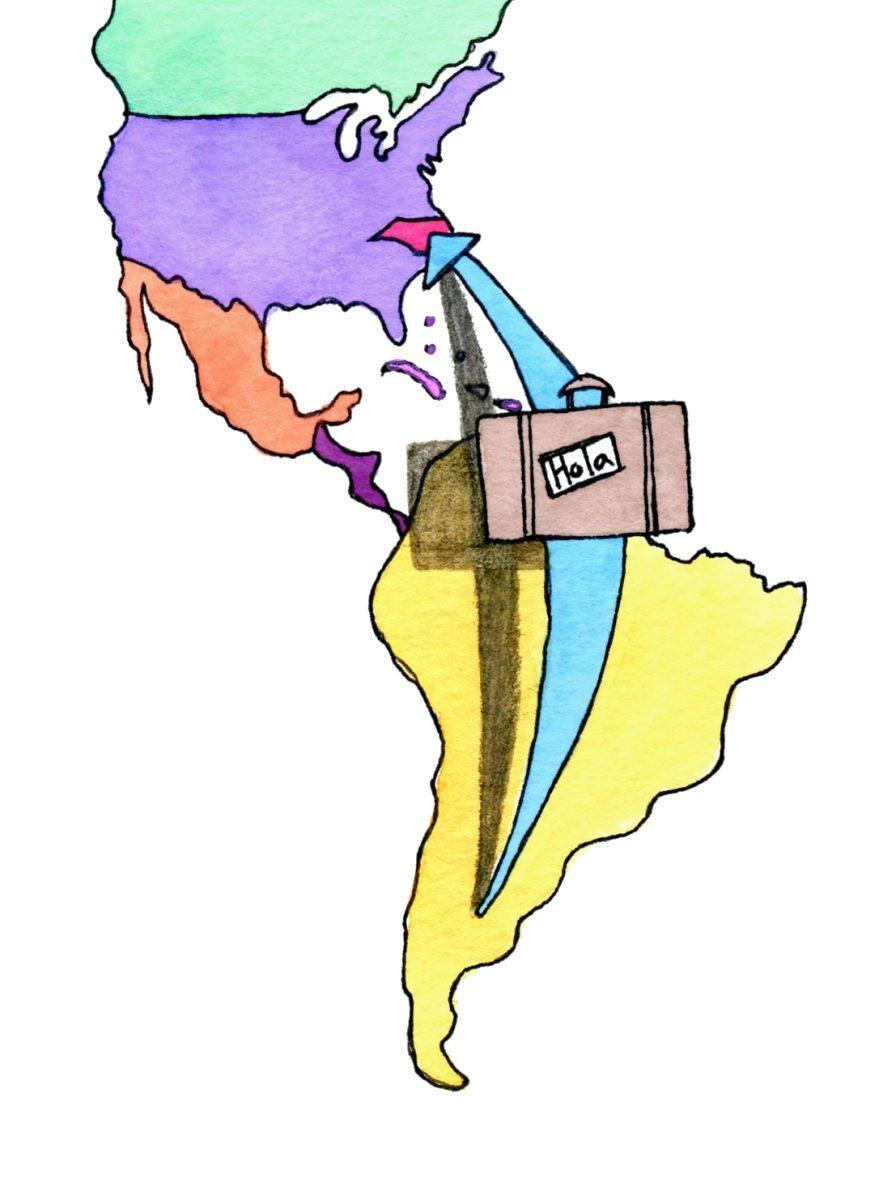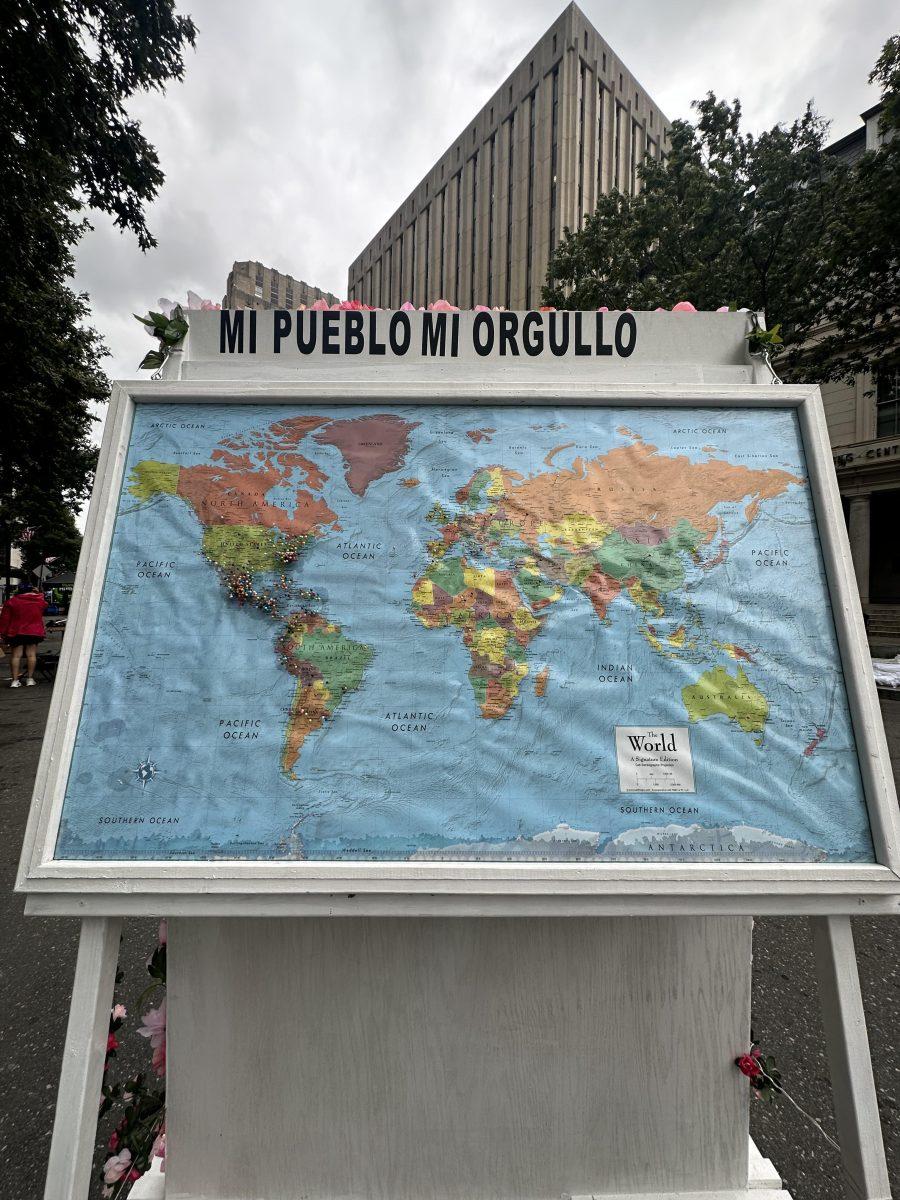Immigration, culture, finance, gender, education and identity are only a few of the dozens of subjects that are included in the New Roots oral history archives. New Roots is a digital archive that preserves the stories of Latino migrants who have settled in North Carolina. According to the official New Roots website, more than 130 interviews have been recorded, featuring individuals from 11 different nations.
Director and founder of New Roots, Hannah Gill, began the program in 2008 with a course she teaches at UNC-Chapel Hill called Latin America Immigrant Perspectives. According to Gill, the global studies class, supported by The Latino Migration Project and APPLES Service-Learning, includes the training of bilingual students in oral history methodology and the conduction of service learning.
“The course enables [students] to make connections and build relationships with foreign-born residents,” Gill said. “Oral history is important because it enables people to tell their own stories through their first-hand perspectives. It is important that the history of North Carolina reflects the perspectives and stories of its many Latino residents.”
Gill said the lasting impact of the New Roots program is to provide an accurate history of North Carolina and its residents, to be utilized for researchers and to be an opportunity for others to hear firsthand perspectives of migrants.
Laura Villa Torres has been the outreach assistant for New Roots since June 2015. She emphasized the importance of opening the perspective of a new group of people that have slowly settled and grown to change the landscape of North Carolina. According to Villa Torres, currently 91 percent of Latino youth under 18 years old in North Carolina are U.S.-born.
“It is an amazing and exciting time to explore how immigrant parents and U.S.-born children grow and live in this state,” Villa Torres said. “New Roots just brings those histories to the surface, puts them on the spotlight. [This program] makes us reflect on what we can do for this transition to be one that allows for Latino families and communities to thrive and live happy and with dignity, integrated to the rest of the communities in North Carolina.”
Gill said she encourages her students to conduct oral history interviews by asking open-ended questions, having the interviewee guide the conversation, building a relationship with the interviewee to build trust and a higher level of sharing, being prepared and knowledgeable about the recording equipment and understanding the commitment that is involved in interview transcriptions.
“I think one of the most important parts of oral history is that the person that does the talking is the person that is being interviewed,” Gill said. “The best interviews happen when there is a relationship between the interviewer and the interviewee, [when] there is trust between those two individuals, so there is a level of sharing that is much higher if you have that relationship.”
Upon students concluding research papers that are derived from the interviews, the Southern Oral History program and UNC-CH University Libraries archive and maintain the files for the future.
Earlier this year, New Roots and its partners, the Latino Migration Project, Southern Oral History Program and University Libraries, launched a new website sponsored by the National Endowment of Humanities. The website displays the digital bilingual archives with navigation available between categories including: year, theme, country of origin and individuals.
“There are a lot of researchers that are working with oral history as they can be used in tandem with journal articles, books or other archival forces to help provide a more accurate representation of North Carolina history,” Gill said. “The website launch makes New Roots accessible to new regional, national and global public constituencies both north and south of the U.S.-Mexico border.”
As a Ph.D. candidate in the Department of Health Behavior at UNC-CH, Villa Torres said she is deeply interested in the topic of migration and health and uses New Roots as a resource.
“The New Roots project is amazing; it collects the histories of Latinos that have come to North Carolina and changes it forever,” Villa Torres said. “I am lucky now that I get to work very closely with the oral history archive, while promoting its use with many interesting populations such as K-12 teachers, the Latino community and researchers.”
Although founded in a classroom, New Roots welcomes any individual who would like to contribute stories. To get involved, visit newroots.lib.unc.edu and contact Gill at [email protected].
“In a hundred years that historians and others are interested in the Latino lives in North Carolina and how all that started, New Roots will be without a doubt the point of reference,” Villa Torres said. “This is a good example of something that can extend to other states in the United States that are going through similar transition with Latinos and other populations.”








